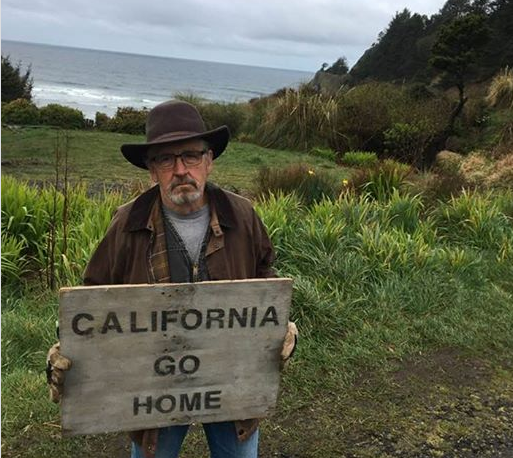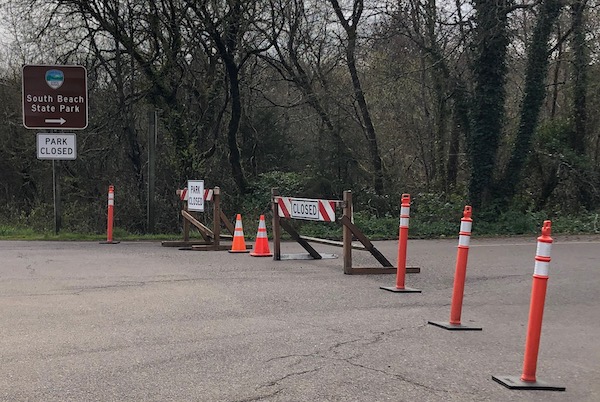
For a lot of coastal Oregonians, we sometimes daydream of spring without spring breakers where the locals can rule the beaches, waves, bars and restaurants and highway 101 is absent of slow moving cars and RVs. And with the State of Emergency and global health crisis we're currently facing with COVID-19, that locals-only notion went to level ten as droves of spring breakers descended upon the coast representing a greater threat than crowded line ups and highway 101 traffic. On the other hand, a lot of coastal Oregonians have slow to no business or income in the absence of such tourism booms and are under a lot of anxiety right now. The Governor's Executive Order and Oregon Parks closures have created relief for some, but much uncertainty for those in the hospitality, food and beverage industry.
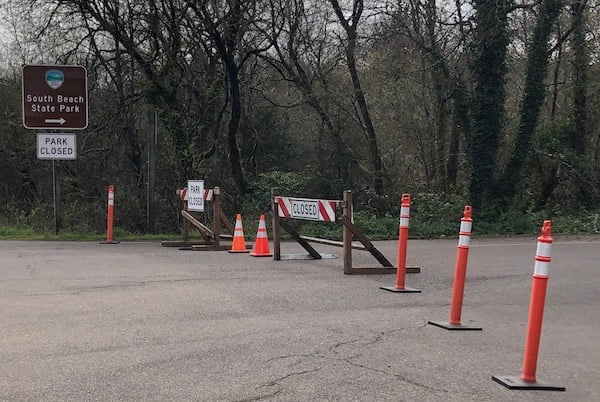 The entrance to South Beach State Park, blocked and closed to entry. All coastal campgrounds and parks remain closed since March 23.
The entrance to South Beach State Park, blocked and closed to entry. All coastal campgrounds and parks remain closed since March 23.
The first weekend of spring break was the first week the pandemic really hit reality level on the Oregon coast. The anxiety of transmitting COVID-19 to coastal Oregon was not just spreading through fearful headlines and social media but it was coming in the form of thousands of spring breakers to the Oregon coast. On any given year you're likely to find some grumpy locals with the state of spring breakers threatening some disturbance in their coastal universe, but this year was unique...everyone got "loco local" as I like to call it. It wasn't just surfers, fishers or mushroom hunters fighting for some scarcity of resource, it was every coastal resident terrified of tourists transmitting a deadly virus to our poorly-equipped coastal health care system.
Oregon coastal residents had really good reasons for concern. We have a high retirement population right in the target zone of those most vulnerable to succumbing to the virus – more than 25% of coastal residents are over the age of 65. Many live extremely rurally and in high isolation with a number of transportation challenges. Our health care infrastructure is a fraction of that of inland communities. So to say the least, beyond being a little prickly about visitors in general, Oregon coastal residents had a lot of reasons to feel exposed amidst the COVID-19 pandemic. So on March 23, when Oregon Parks and Recreation Department did the tough thing and closed all state-managed parks, beach access points and campgrounds, many coastal residents breathed a sigh of relief as the crowds dissipated and the parks, trails and beaches cleared out.
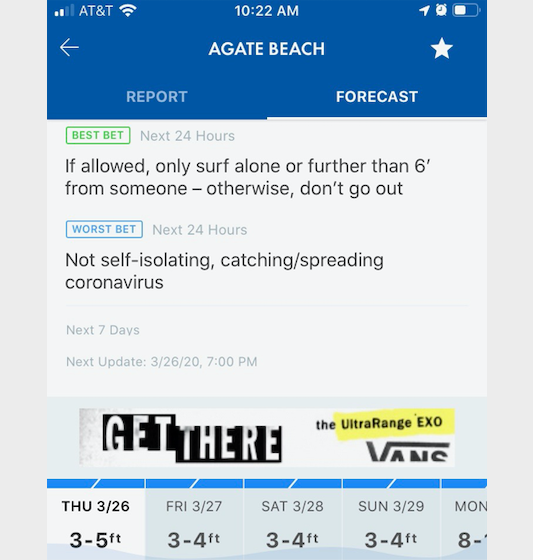 Surfline has been reinforcing "stay at home" and "only surf alone" messaging in their forecasts. It's been refreshing to see even the frothiest in the surf community reinforcing healthy practices during this time.
Surfline has been reinforcing "stay at home" and "only surf alone" messaging in their forecasts. It's been refreshing to see even the frothiest in the surf community reinforcing healthy practices during this time.
But as some on the coast draw a sigh of relief for the spring breakers to clear, many are left full of anxiety as the pandemic stands to do as much (potentially more) damage economically to the coast as it will do to human health. The tourism powerhouse that is much of the economy of the Oregon coast is fragile to recession – economists will tell you that the rural coast never really emerged from the recession of the late 2000s like the rest of Oregon did. Just like then, we're going to see some businesses weather the storm and some of them not. Hundreds in the tourism and hospitality industry are left without jobs and no certainty for when they can get back to normal. Oregon's coastal tourism industry is a billion dollar industry and times like now we see just how fragile that part of our economy can be. At the personal level, I feel blessed to have a job but at least half of my friends here on the coast have either lost their jobs or have had to lay off employees at their businesses. At times like these, you look around and we see just how paycheck to paycheck many of us are.
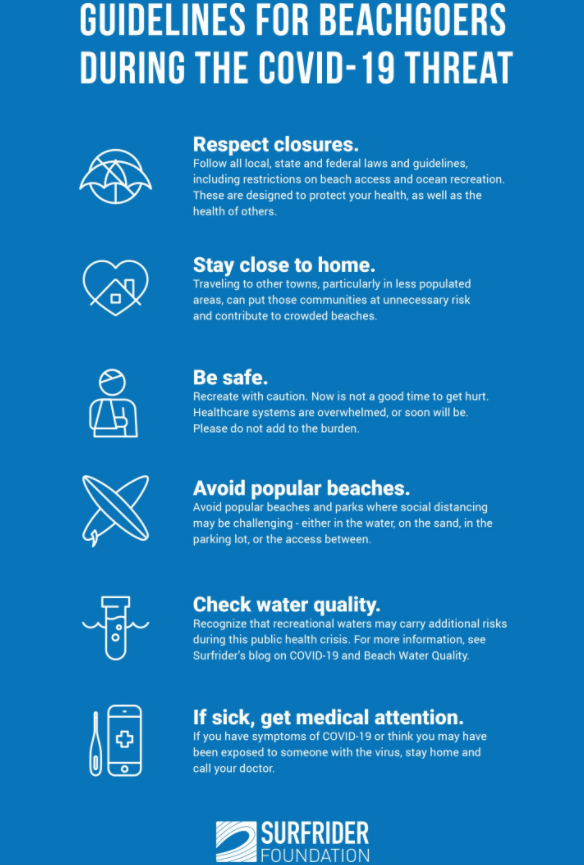 For those of us lucky enough to live at the beach. For others, these simple guidelines can apply to most outdoor spaces to help keep everyone safe.
For those of us lucky enough to live at the beach. For others, these simple guidelines can apply to most outdoor spaces to help keep everyone safe.
So if you're lucky enough to live here on the coast, be healthy and have a job I highly recommend finding a way to give back some of your good fortune. Support a local business while respecting stay at home and social distancing laws – many restaurants, bars and grocery stores offer pick up where you don't have to even get out of your car! Check out our Surfrider resources for ways to be an activists from home, support your local community and generally be a good citizen during these crazy times. We are all neighbors on planet ocean – let's take care of each other!
Surfrider COVID-19 & Beach Access
COVID-19 & Beach Water Quality - What We Know/Don't Know
Statement on Chapter and Club Activities
Plastic Pollution, Reusables and COVID-19

